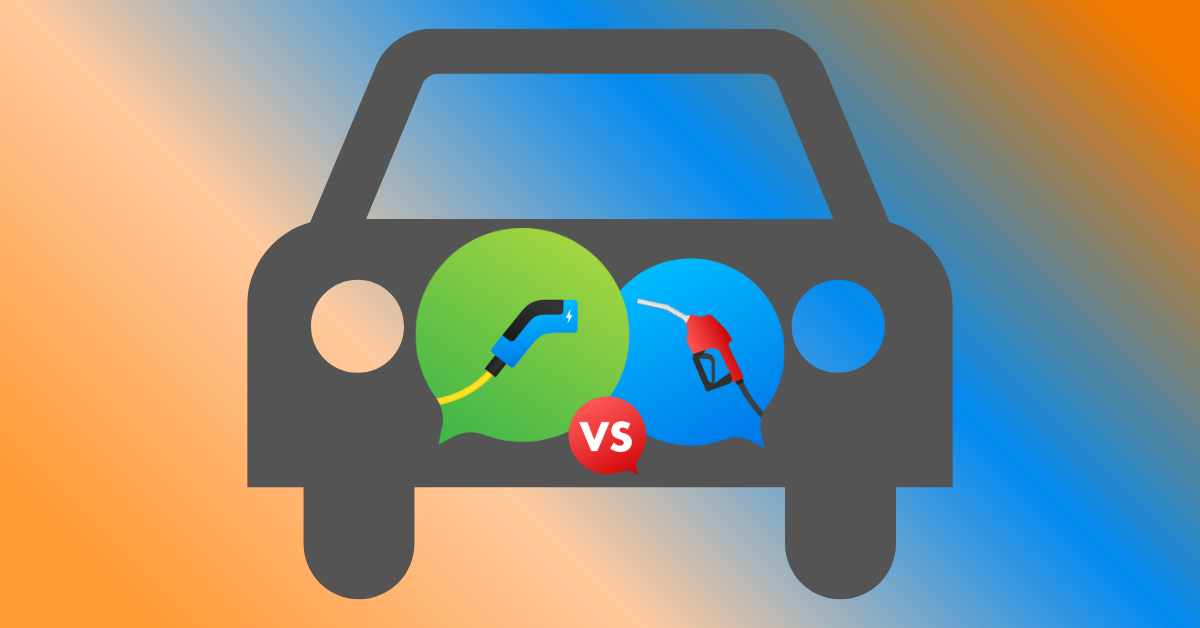In today’s rapidly evolving automotive landscape, the transition from traditional gasoline-powered vehicles to more eco-friendly options has taken center stage. Among the top contenders in this green revolution are electric cars (EVs) and hybrid cars, each offering distinct advantages and catering to a diverse range of consumer needs. In this article, I will embark on a comprehensive journey through the differences between electric cars and hybrid cars, helping you make an informed choice that aligns with your values and lifestyle.
Electric Cars: The Emission-Free Pioneers
Electric cars, often celebrated as the vanguard of environmentally conscious transportation, have been making significant strides in recent years. The core distinction that sets them apart from their hybrid counterparts is their exclusive reliance on electricity as a power source.
As their name suggests, electric cars run solely on electricity. They employ large batteries, typically lithium-ion, to store electrical energy. These batteries then supply power to an electric motor, propelling the vehicle with remarkable efficiency. This exclusive reliance on electricity makes electric cars a beacon of sustainability, as they produce zero tailpipe emissions.
When it comes to fuel efficiency, electric cars shine. They boast an impressive “Miles Per Gallon of Gasoline-equivalent” (MPGe) or “Kilometers Per Kilowatt-hour” (km/kWh) rating. The absence of an internal combustion engine means no gasoline consumption, no tailpipe emissions, and a cleaner, greener drive. However, it’s crucial to note that the efficiency of electric cars can vary depending on factors like battery capacity and driving conditions.
The range, or the distance an electric car can travel on a single charge, has been a historical concern but is gradually becoming less so. Modern electric vehicles are pushing the boundaries of range, with some models offering over 300 miles or 480 kilometers on a full charge. Yet, it’s essential to consider that range can fluctuate based on factors such as weather conditions, driving habits, and the specific model’s battery capacity.
Charging an electric car is a unique experience compared to traditional refueling. Standard home chargers can take several hours to replenish a depleted battery, which may require some adjustments to your daily routine. However, the convenience of home charging is undeniable. Alternatively, fast-charging stations can significantly reduce charging time, making long trips more feasible. The availability and accessibility of charging infrastructure can vary depending on your location.
Electric cars are celebrated for their minimal environmental impact, but this can vary based on the source of electricity generation in your region. In areas with a high percentage of renewable energy sources like wind or solar power, electric cars are even more eco-friendly. They produce no tailpipe emissions and contribute to reduced air pollution.
Hybrid Cars: Striking a Balance
Hybrid cars, often seen as a bridge between traditional gasoline vehicles and full electrification, offer a unique blend of gasoline and electric power. They are known for their versatility and fuel efficiency.
These types of cars feature a dual-power system that combines an internal combustion engine (typically gasoline) with an electric motor. This blend allows hybrids to switch between gas and electric power or utilize both simultaneously, depending on driving conditions. Hybrids are designed to optimize fuel efficiency by using the electric motor for lower-speed driving and the gasoline engine for higher speeds and longer journeys. This dual-power system significantly reduces tailpipe emissions compared to conventional gasoline cars.
When it comes to fuel efficiency, hybrids excel. They achieve better gas mileage than traditional gasoline cars due to their ability to harness electric power for low-speed driving. By switching between power sources intelligently, hybrids offer impressive fuel economy and reduced greenhouse gas emissions. However, it’s essential to note that hybrids still rely on gasoline and emit emissions when the internal combustion engine is in use.
Hybrid cars enjoy a flexible range, thanks to their dual power system. Unlike purely electric vehicles, hybrids don’t face the same range of limitations. They can seamlessly switch between gasoline and electric power, making them a practical choice for those who frequently drive long distances. This adaptability eliminates range anxiety, a common concern for electric vehicle owners.
One of the notable advantages of hybrid cars is their ease of refueling. Just like traditional gasoline vehicles, hybrids can be refueled at standard gas stations, providing a familiar and convenient experience. This accessibility to refueling infrastructure makes hybrids a suitable option for regions with limited access to charging stations.
While hybrids are more fuel-efficient and emit fewer pollutants compared to traditional gasoline cars, their environmental benefits are less pronounced than those of electric vehicles. Hybrids represent a significant step toward sustainability, but they still rely on fossil fuels to some extent. The degree of environmental impact largely depends on driving habits and how frequently the gasoline engine is engaged.
Choosing Your Path to Sustainability
In the evolving landscape of eco-friendly transportation, electric cars and hybrid cars stand as prominent choices, each offering a unique blend of advantages. Electric vehicles, with their zero-emission driving and growing range, are ideal for those with shorter commutes and access to charging infrastructure. They symbolize a commitment to a greener future and cleaner air.
On the other hand, hybrid cars offer a balanced solution for individuals seeking improved fuel efficiency without fully committing to electric mobility. They provide flexibility for long-distance travel and easy refueling, making them a practical choice for various driving needs.
Ultimately, the choice between electric and hybrid cars comes down to your specific lifestyle, values, and driving habits. As technology continues to advance, both options will play pivotal roles in our journey towards a more sustainable and environmentally conscious future on the road.


